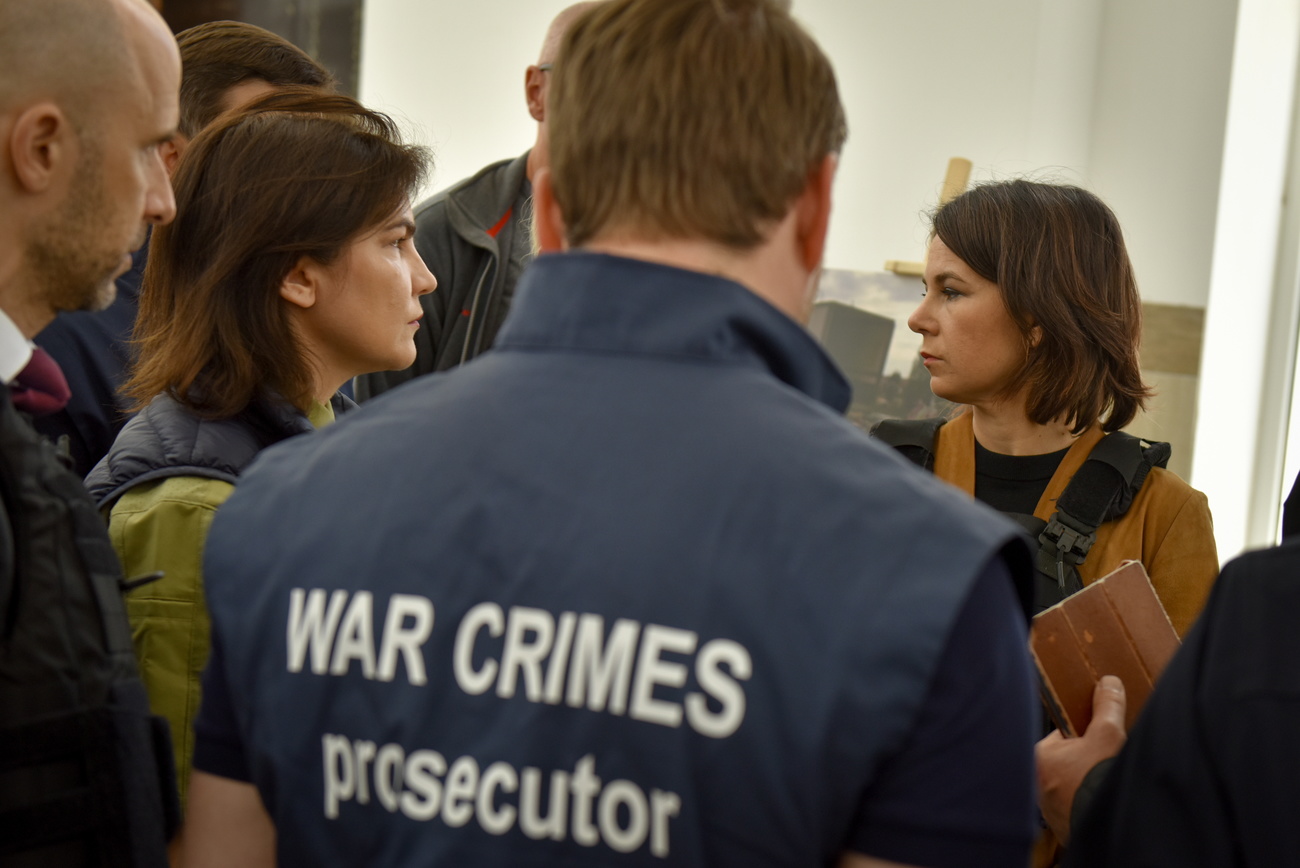
Bringing Russian war crimes to justice may take decades, says lawyer

There have been many accusations of Russian war crimes since the start of the Ukraine war, but documenting and punishing them will take time, says Philip Grant, director of Swiss NGO TRIAL International.
The current situation should allow Switzerland and many other countries to take the lead and start some trials, he told Swiss public broadcaster RTS in an interviewExternal link this weekend. “The International Criminal Court can conduct this kind of trial, but they are long trials that mobilise a lot of resources and energy,” he told RTS. “Alongside this Court, states also have the capacity, even if the crimes were committed abroad, to arrest and bring to trial the perpetrators of atrocities.”
TRIAL InternationalExternal link is a Geneva-based NGO fighting against impunity for international crimes (war crimes, crimes against humanity, genocide) and promoting “universal jurisdiction”. This is a principle allowing states to try such crimes committed by anyone, anywhere in the world, under certain conditions. Switzerland is among the countries that have enshrined this principle in its national legislation, although it has brought very few such cases to trial so far.
Grant is aware that the continuing war continues to hamper justice significantly, but thinks patience is required. “As far as the Russian aggression is concerned, it is a task that will certainly last for decades,” he told RTS. “But in any case, we need to document and safeguard the evidence, raise awareness among the victims and try to start building case files.”
In March, Switzerland’s attorney general announced he was setting up a taskforce to collect evidence from refugees of possible war crimes in Ukraine. Many other Western countries have done the sameExternal link, and Ukraine itself has already started some trials.

More
What are the Swiss doing to gather evidence of war crimes in Ukraine?

In compliance with the JTI standards
More: SWI swissinfo.ch certified by the Journalism Trust Initiative






























You can find an overview of ongoing debates with our journalists here . Please join us!
If you want to start a conversation about a topic raised in this article or want to report factual errors, email us at english@swissinfo.ch.